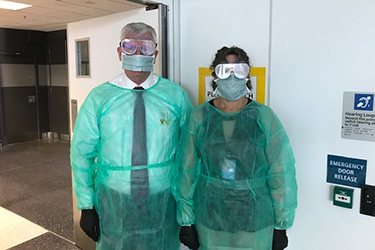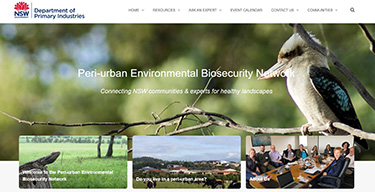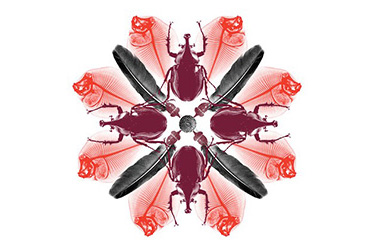
New department offers better links for biosecurity and sustainable resources
The new year brings with it a new decade. For the department, it also brings a new name and a new department head, Andrew Metcalfe AO.
On 1 February the Department of Agriculture merged with the environment functions from the Department of the Environment and Energy. We are now the Department of Agriculture, Water and the
Environment. Read more.

Celebrating a year of plant health
For the first time in history, the United Nations General Assembly has focused global attention on plant health by declaring 2020 the International Year of Plant Health (IYPH).
IYPH provides a unique opportunity for the international plant health community to work together to combat emerging plant pest threats on a global scale.
Governments, industries, researchers and international ambassadors came together at Parliament House to mark the launch of Australia’s IYPH’s program of plant health events and activities. Read more.

Would be budgie smugglers thwarted
Biosecurity officers at Sydney Airport recently averted cat-astrophe, intercepting luggage full of illegally imported whole dried birds, pet food and unknown veterinary supplements.
Head of biosecurity, Lyn O’Connell, said the items could have exposed Australia to the risks of avian influenza, a serious biosecurity threat to our animal health status. Read more.

Importers benefit from optimised intervention approaches: 5 new plant products added to CBIS
The Compliance-Based Intervention Scheme (CBIS) has proven to be a smarter approach to managing biosecurity risk at the border. The scheme rewards importers who continually comply with Australia’s import conditions through risk-based intervention.
The scheme expanded in 2019 to include a total of 37 plant products. Several new commodities will be added to CBIS in the first part of 2020 including:
- fresh immature corn
- some species of fresh, chilled mushrooms
- dried onions
- fresh chilled Agaricus mushrooms from New Zealand
- fresh blueberries from New Zealand.
Read more.

Bee imports create a buzz at the PEQ
A trial is underway at the department’s Post entry quarantine (PEQ) facility in Melbourne to prepare for imports of live queen bees from around the world.
Newly appointed biosecurity apiary officers have been working with industry partners since December to test PEQ operations for managing bee imports.
Head of the PEQ, Dr Peter Finnin, says the Queen bee domestic trial will provide huge benefits to the bee industry. This includes access to important genetics, particularly around preventative resistance to the devastating bee mite, Varroa destructor (an exotic National Priority Plant Pest not currently present in Australia). Read more.

Taking the bite out of exotic mosquitoes with the vector monitoring program
Mosquitoes are among the world’s most deadly animals. Their bite alone is unlikely to kill—but the diseases they spread could.
Mosquitoes are the vector for many diseases including dengue and zika virus disease which are exotic to Australia. Some mosquitoes are a higher risk than others. The Asian tiger mosquito, for example, is able to spread over 22 viruses to humans.
The impact of these diseases on society and the economy is unimaginable for people living in countries like Australia that enjoy a high standard of health and well-being. Read more.

Keeping the DAWE closed to coronavirus (COVID-19)
The Department of Agriculture, Water and the Environment (DAWE) is treating coronavirus (COVID-19) seriously for passengers arriving in Australia.
Head of biosecurity operations Emily Canning and head of our inspections group (west) Jim Simpson recently gowned up to lend a hand providing information pamphlets to incoming passengers at Sydney Airport.
Our biosecurity officers are working diligently to screen incoming passengers and referring those of interest to health professionals for assessment. Read more.

Inspections group profile: let’s take a closer look…
Comprising around 1,220 staff, Inspections Group has a commanding national footprint in the department with a presence in all capital cities, key regional locations and ports, Australia’s offshore territories and are also involved in offshore pre-shipment inspection work in various overseas countries.
Biosecurity officers perform regulatory screening and inspections for compliance with Australia’s biosecurity and export market requirements and for assurance purposes. In addition to physically inspecting goods, vessels and arriving international passengers, biosecurity officers use a range of technologies such as 3D X-ray and automated profiling, ands Detector Dogs to target and delineate biosecurity risk. Read more.

Connecting communities: New Peri-urban Environmental Biosecurity Network website launched
The Peri-urban Environmental Biosecurity Network (PEBN) provides a platform to connect small landholders in peri-urban communities and experts in environmental biosecurity.
The purpose of the platform, led by New South Wales Department of Primary Industries, is to work together to protect the environment from exotic pests and diseases.
The network will publish and post seasonally relevant articles on how to look for and identify pests and diseases, as well as guidance on the tools and steps to report them. Read more.

Working with industry to co-design an onshore biosecurity levy
We have been working collaboratively with an industry working group to co-design a new onshore biosecurity levy.
This levy will help fund our increasingly complex and challenging biosecurity system. Funding from the onshore biosecurity levy will support programs that cannot be cost recovered. Read more.